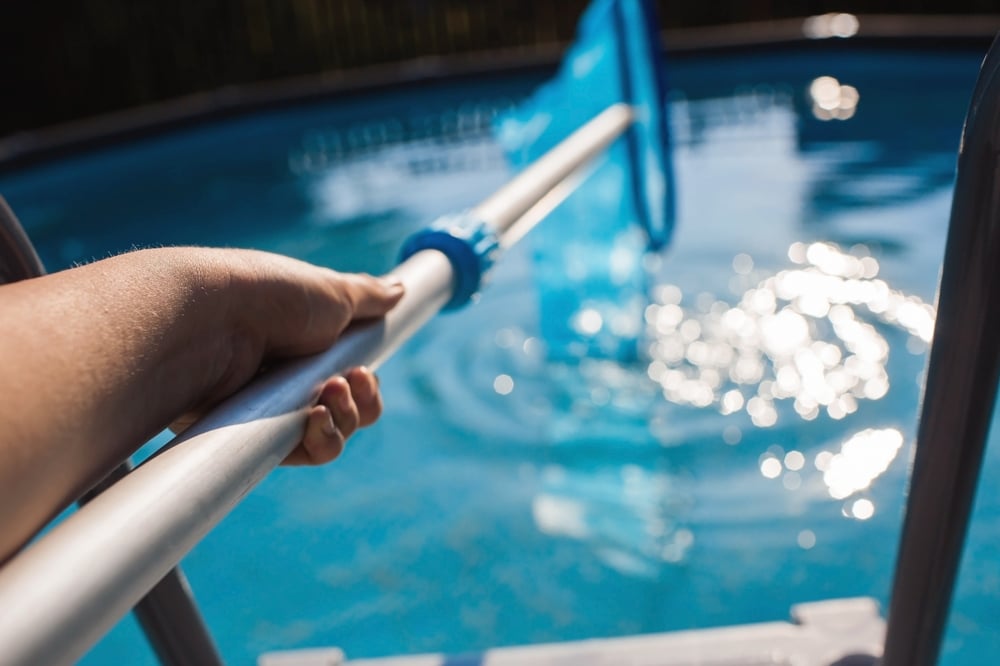Salt water pools are becoming increasingly popular among homeowners because of their low maintenance and health benefits. However, just like traditional chlorine pools, salt water pools need to be winterized to protect them from the harsh winter weather. Winterizing your salt water pool will not only save you money on costly repairs but will also ensure that your pool is ready for the next swimming season.
In this article, we will guide you through the steps you need to take to winterize your salt water pool. We’ll cover everything from balancing the water chemistry to protecting the equipment. So, let’s get started!
Why Winterizing Your Salt Water Pool is Important
Winterizing your salt water pool is essential to protect it from damage caused by freezing temperatures and harsh winter weather. If you don’t properly winterize your pool, you risk damaging your pool equipment, plumbing, and surfaces. Additionally, winterizing your pool will help prevent algae growth, which can be difficult to control once the weather warms up.
Tools and Supplies You’ll Need
Before you start winterizing your salt water pool, you’ll need to gather the necessary tools and supplies. Here’s a list of the things you’ll need:
- Pool cover
- Winterizing chemicals (if necessary)
- Pool brush and net
- Pool vacuum
- Water testing kit
- Pool antifreeze
- Air compressor or shop vac
- Winterizing plugs
How to Winterize a Salt Water Pool: Step-by-Step Guide
Balance the Water Chemistry
The first step in winterizing your salt water pool is to balance the water chemistry. Make sure the pH, alkalinity, and calcium hardness levels are within the recommended range. You can use a water testing kit to check the levels and adjust them accordingly.
Clean the Pool
Brush the pool walls and floor to remove any debris, and then vacuum the pool. Make sure to empty the skimmer basket and pump strainer basket. You may also want to shock the pool to kill any remaining bacteria and algae.
Lower the Water Level
Lower the water level in the pool to just below the skimmer. This will prevent the water from freezing and damaging the skimmer and pool plumbing.
Drain the Pool Equipment
Drain the pool equipment, including the pump, filter, and heater. Use an air compressor or shop vac to blow out any remaining water.
Add Winterizing Chemicals
If necessary, add winterizing chemicals to the pool according to the manufacturer’s instructions. This will help prevent algae growth and keep the water clean during the winter months.
Add Pool Antifreeze
Add pool antifreeze to the pool plumbing lines to prevent them from freezing and cracking. Make sure to follow the manufacturer’s instructions for the amount to add.
Install Winterizing Plugs
Install winterizing plugs into the pool equipment to prevent water from entering and causing damage. Make sure to remove any drain plugs from the pump and filter.
Cover the Pool
Finally, cover the pool with a pool cover. Make sure the cover is secure and snug to prevent debris from getting in. A good pool cover will also help prevent water from getting in and causing damage. You may want to consider using a winter cover that is specifically designed for your pool type.
Closing Your Salt Water Pool: FAQs
Q: When should I winterize my salt water pool?
A: You should winterize your salt water pool when the water temperature consistently drops below 60 degrees Fahrenheit.
Q: Do I need to drain my salt water pool completely?
A: No, you do not need to drain your salt water pool completely. You only need to lower the water level to just below the skimmer.
Q: Do I need to add winterizing chemicals to my salt water pool?
A: If your pool is properly balanced and clean, you may not need to add winterizing chemicals. However, if you have had algae or other issues in the past, it is a good idea to add them to prevent any issues during the winter months.
Conclusion
Professional pool cleaning services in Atlanta can be a great option for ensuring that your salt water pool is properly winterized. They can help with balancing the water chemistry, thorough cleaning, draining the equipment, adding winterizing chemicals, and installing winterizing plugs and a pool cover. By enlisting the help of professional Atlanta pool cleaners, you can ensure that your pool is well-prepared for the winter season and ready for hassle-free enjoyment next year.
